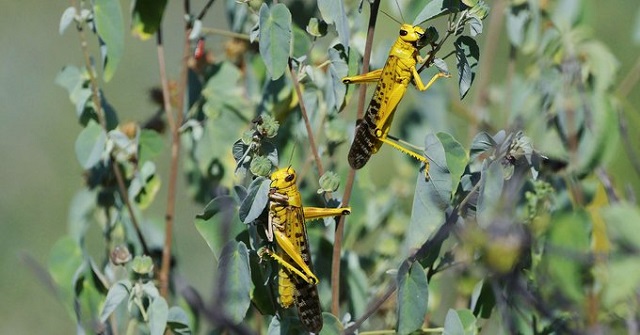
Kampala, Uganda | THE INDEPENDENT | The Norwegian Refugee Council (NRC), an independent humanitarian organization focused on helping refugees has said the invasion of desert locusts may worsen the refugee crisis in East Africa.
Nigel Tricks, the NRC´s Regional Director for East Africa said in a press statement issued on Thursday that the invasion came at a time when there is already gross under-funding of humanitarian responses across East Africa.
“A humanitarian catastrophe is looming in East Africa if funding to tackle the locusts invasion isn’t secured now. This region has opened its arms to a huge number of displaced people with millions already hammered by climate shocks and conflict. The locust invasion is threatening vulnerable communities and puts further strain on the already stretched resources of governments and aid agencies,” said Tricks.
He added that funding was already short of what is needed to support these communities even without the current locust threat. He said refugee’s response plans for Uganda, Ethiopia and Tanzania were less than half funded in 2019.
Uganda hosts close to 1.5 million refugees mainly from South Sudan who fled their country in 2013 following a violent contest of power among that country’s leaders.
Desert locusts invaded Uganda two weeks ago from Kenya and have spread to over 26 districts in the east of the country.
Ulrika Blom, the country director for NRC in Uganda added that funding shortages for the growing refugee population will only worsen now that the locusts have invaded parts of the country. “Within the precarious refugee setting, it is especially worrying for host communities who risk having their small livelihoods destroyed and are then forced to rely on humanitarian support that is already shamefully inadequate,” added Blom.
He added that host communities and the wider population are already affected by recurrent drought and floods that destroyed crops and livelihoods last year. “Around 28.9 million people are in need of some kind of aid across the region because of drought and a lack of food,” the statement said.
The UN’s Food and Agriculture Organization (FAO) said a food crisis is looming in the region if resources are not forthcoming. It has therefore appealed to donors for an additional $62m on top of the $76m requested last month to deal with the threat. FAO says that one swarm of locusts has reached the eastern boundaries of the Democratic Republic of the Congo while South Sudan reported its first swarm invasion last week.
******
URN
 The Independent Uganda: You get the Truth we Pay the Price
The Independent Uganda: You get the Truth we Pay the Price





